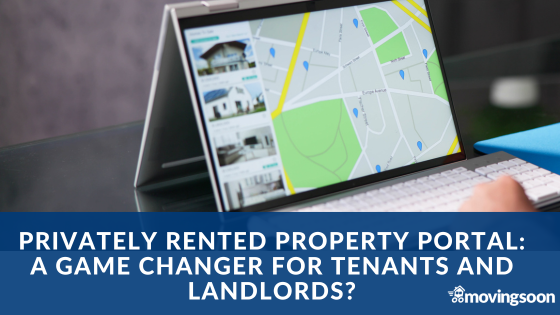The Renters’ Reform Bill, currently making its way through Parliament, has a game-changing element for the private rented sector (PRS) in England: the Privately Rented Property Portal. This proposed online resource aims to be a one-stop shop for everything related to renting, offering increased transparency and potentially smoother sailing for both tenants and landlords.
While the portal itself isn’t live yet, its arrival has sparked discussions. Let’s delve into the details and explore what this new system might mean for the PRS landscape.
What is the Privately Rented Property Portal?
The government sees the portal as a central hub for information on private rental properties in England. It will function as a database containing details about landlords, their properties, and potentially even past tenancy records.
Here’s a breakdown of the potential benefits for different stakeholders:
-
Tenants:
- Increased transparency: Gain access to crucial information about a property before committing to a tenancy. This could include details like Energy Performance Certificates (EPCs), past health and safety reports, and any outstanding enforcement actions against the landlord.
- Easier enforcement of rights: The portal could provide tenants with clearer information on their rights and responsibilities, allowing them to take informed action if issues arise.
- Streamlined communication: The portal might offer a central communication channel between tenants and landlords, potentially facilitating smoother resolution of concerns.
-
Landlords:
- Improved image for responsible landlords: A system highlighting responsible landlords with good track records could benefit them when attracting tenants.
- Easier compliance checks: The portal could guide landlords on their obligations and simplify compliance checks.
- Centralised communication: Similar to tenants, landlords could benefit from a platform for streamlined communication.
-
Local Authorities:
- Enhanced enforcement: Easier identification of non-compliant properties and landlords could lead to more effective enforcement of regulations, improving overall housing standards.
- Better data collection: The portal could provide valuable data on the PRS, allowing local authorities to target improvement efforts more effectively.
Addressing Tenant Concerns
While the portal offers exciting possibilities, some concerns linger among tenants. Here are a few key points to consider:
- Data Accuracy: The success of the portal hinges on accurate and up-to-date information. Robust mechanisms are needed to ensure both landlords and tenants update their details regularly.
- Privacy Issues: Balancing transparency with tenant privacy is crucial. The portal should ensure only relevant information about properties and past tenancies is accessible.
- Enforcement Power: The portal’s effectiveness will depend on its ability to enforce compliance. Clear procedures for dealing with non-compliant landlords will be essential.
Landlord Considerations
Landlords also have valid concerns:
- Bureaucracy Burden: The portal should be user-friendly and avoid creating an additional administrative burden for landlords.
- Frivolous Complaints: A system for addressing potentially frivolous complaints raised by tenants needs to be in place.
- Impact on Rents: Some landlords worry the portal might lead to increased regulation and potentially even rent controls.
The Road Ahead for the Private Rented Property Portal
The Privately Rented Property Portal is still in the development stage. The government is currently gathering feedback and conducting user research to ensure the final product meets the needs of all stakeholders.
This new system has the potential to significantly improve the private rented sector in England. By fostering transparency, streamlining communication, and empowering both tenants and landlords, the portal could lead to a fairer and more efficient rental market. However, ensuring data accuracy, addressing privacy concerns, and implementing robust enforcement measures will be crucial for its success.
As the portal takes shape, staying informed and actively engaging in the conversation is key for both tenants and landlords. By working together, they can help shape this new system into a valuable resource that benefits everyone involved in the private rented sector.


